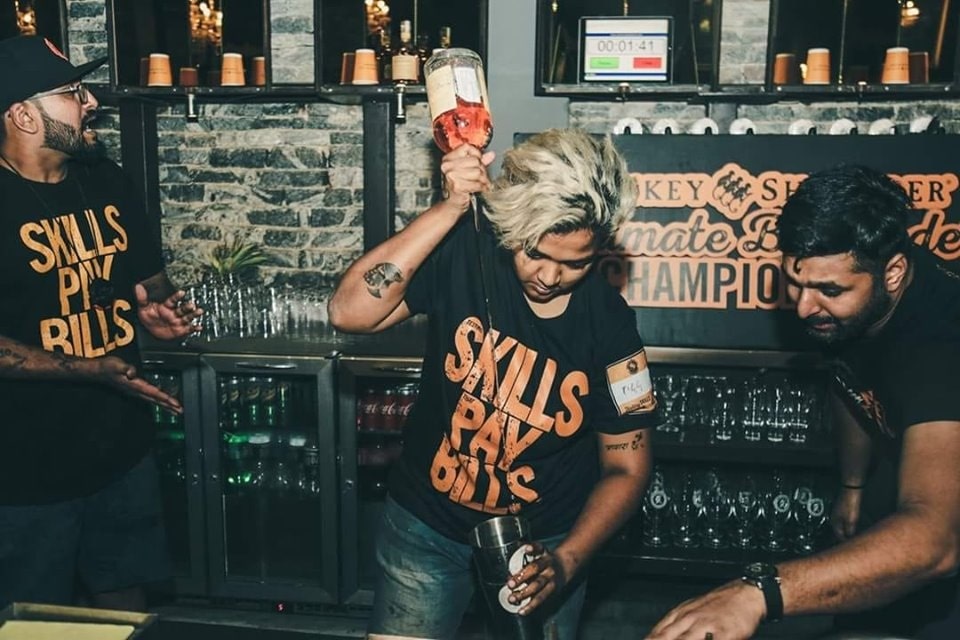Ooty: Arati Mestry, 29, was one proud woman competing against 19 men in the finals of a bartending championship — an example of how women are slowly, but steadily making their way into the male-dominated space in India.
Mestry, who competed at the ‘Ultimate Bartender Championship’, has said that the industry has evolved over the years, opening the doors for women in the profession.
“My experience as a bartender has been very progressive. I love playing with cocktails and love to serve it in different ways to my guests. I never felt that this is the so called ‘men’s game’. I work at a place where I get equal opportunities as male bartenders,” Mestry told this agency.
She is the first to admit that skills help. “I feel nobody can discriminate you if you have skills. In today’s time, skills matter the most. If you are good at your job, people will definitely appreciate you, irrespective of your gender,” said Mestry, who works at a bar in Bangalore, and has been a part of the industry since the last six years.
Ami Behram Shroff and Shatbhi Basu are two names which come up almost every time women bartenders are spoken of in the industry in India.
Pankaj Balachandran, India’s brand ambassador for a leading brand of scotch whiskey stated that in the past there was a taboo that women can’t work in bars, but it has completely changed now.
“An increasing number of women are getting into the hospitality industry. There are bars which have really good ladies bartenders. Four years ago, women in the bartending profession were only a handful, but now the number has increased,” Balachandran said.
However, there are factors that hamper their visibility in the industry. Safety is one prime reason. According to Arijit Bose, who has been in the food and beverage industry for more than 10 years, hiring a woman as a bartender involves a lot of responsibility, and due to lack of facilities, standalone bars still resist working with females.
Bose recounted how the Jessica Lal murder case in 1999 in Delhi had sparked a debate regarding the safety of women bartenders in India.
“Safety matters a lot, especially for women. Bartending is a long hours shift job. It looks easy from the surface level, but there are a lot of complications,” Bose said.
“Employers hesitate to hire women because it becomes their duty to ensure proper safety for them. But no one can guarantee anyone’s safety, right? And one mistake can shut down your whole bar. So that’s why people still prefer to work with male bartenders,” Bose added.
Alisha, a Mumbai-based bartender who also competed at the ‘Ultimate Bartender Championship’, but couldn’t make it to the top 20, said safety has never been a problem for her.
“I know there are places which do not hire women bartenders but people who do hire them, ensure proper safety. At my workplace, there is a separate locker and toilet facility for women. Proper cab facility is also provided to female employees. Women’s safety is a top priority at my workplace,” Alisha said.
Alisha said she was also lucky to get her family’s support in her decision of following her passion for bartending – unlike most people whose parents consider the profession ‘non-serious’.
“There are many perceptions regarding our profession. People generally think we just know how to serve alcohol. But there is a lot more beyond it. From interacting with customers to maintaining proper cleanliness to making new types of drinks, a bartender has to do multiple tasks. It’s not easy to be a bartender. Our profession looks quite glamorous but it is also a serious job. Things have changed, but there should be more changes. I hope in the coming years, I see more girls coming in,” Alisha pointed out.
IANS
